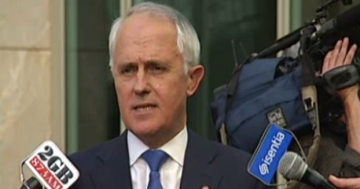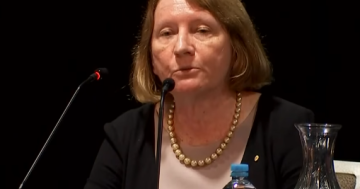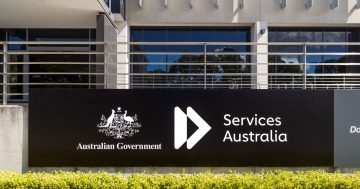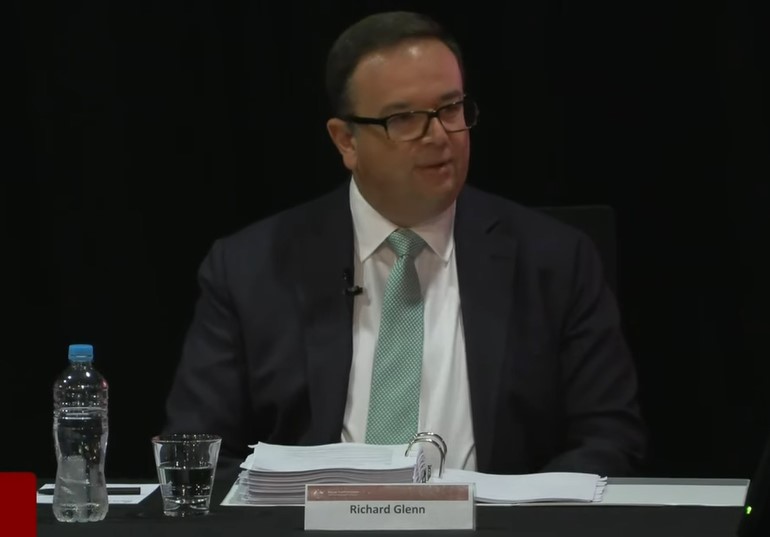
Former Ombudsman Richard Glenn at the Robodebt Royal Commission. Image: Screenshot.
An ombudsman responsible for a 2017 report into Robodebt did not take the opportunity to refer to its legality at all, the Royal Commission into the scheme has heard.
Former acting Commonwealth ombudsman Richard Glenn told the inquiry that he was not prepared to comment on whether the automated debt recovery scheme was legal or not.
“On the material before me, I was not satisfied we could make a declaratory statement and I chose not to comment on legality,” Mr Glenn said.
“Ultimately, I decided not to include this text in the report.”
His final report sparked concerns about impartiality when it was discussed at the Royal Commission on Thursday (9 March), with Commissioner Catherine Holmes suggesting he should have listened to his staff.
“It’s frustrating, Mr Glenn, because [the legal opinion from Ombudsman staff was] absolutely correct,” the Commissioner said.
“And the most frustrating thing is they [Department of Human Services] never went to the [Social Security Act] and looked at what’s permissible.
“But your staff actually did and they were right.”
The inquiry had earlier heard from former acting senior assistant ombudsman Louise Macleod who, through tears, said she wasn’t listened to when she gave advice that the scheme was illegal.
During her day-long evidence on Wednesday, Ms Macleod said she felt like a failure because she knew the scheme was potentially illegal years before it was eventually stopped, but she could not convince anyone else.
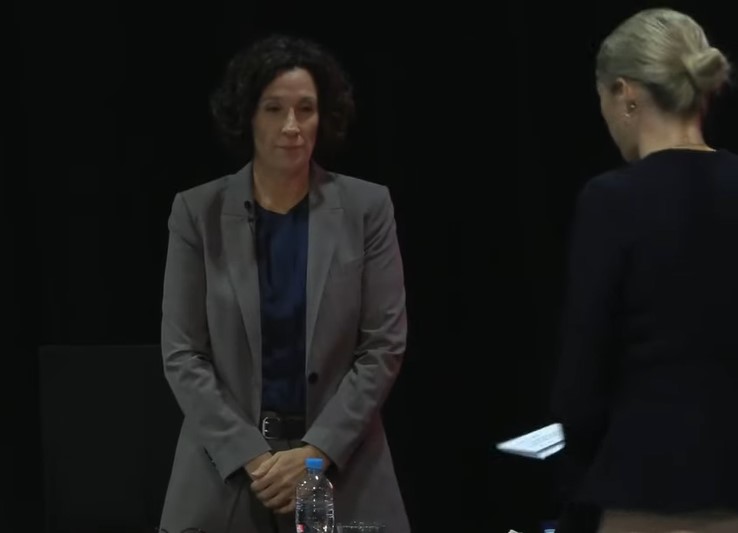
Louise Macleod being sworn in at the Robodebt Royal Commission. Image: Screenshot.
When shown another document drafted by DSS’s public law branch raising concerns about the program’s legality, Ms Macleod said she had never seen it before.
“We would have definitely been asking questions of the department [if she had seen it],” she said.
“Basically a ‘please explain, what this is about?’ and calling out, I would hope, that this was enough to say it was unlawful.”
She explained that the “calling out” would have been done publicly and through a report.
In her view, she told the inquiry, the Commonwealth Ombudsman should have referred DHS to the Administrative Appeals Tribunal over Robodebt.
An investigation commenced because it was “ticking lots of boxes” of concern as the ombudsman’s office was receiving “lots of complaints” about the scheme.
“We were concerned about the responsiveness of the department [DHS] in engaging with the issue and we’d had several meetings with them in the lead up to the 5th of January [2017] and the department seemed very comfortable with what they were doing even though we were raising concerns and we were not sure what they were doing was in accordance with the legislation,” she said.
But despite raising her concerns with the acting ombudsman, Ms Macleod said the language in the final report on the scheme was softened.
“Ironically now, there were concerns about pitting the Commonwealth against the Commonwealth. The ombudsman’s office against a department in a tribunal … We had concerns,” she said.
“Ultimately, though, it was a decision for the acting ombudsman what was put in the report.”
On Thursday, Mr Glenn would not accept that by not referring to the scheme’s illegality, he had failed to demonstrate the level of independence required of his office.
Nor did he initially accept that he was involved in maladministration.
“I think it’s poor practice. I would wish to reflect on whether that’s maladministration,” Mr Glenn said.
But the Commissioner challenged him on that point.
“Starting a scheme that, on your advice, is unlawful, you wouldn’t see that as maladministration?” she asked.
Mr Glenn conceded it was, but added: “In the absence of any other advice.”
In 2021, Federal Court Justice Bernard Murphy ruled the scheme unlawful.
The Royal Commission into the Robodebt Scheme will hear its last witness evidence today [Friday] and report to the Federal Government by 30 June.













